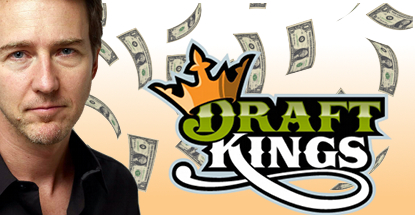 Daily fantasy sports operator DraftKings continues to ramp up its TV ad spending and its CEO claims its marketing approach has allowed it to surpass archrival FanDuel.
Daily fantasy sports operator DraftKings continues to ramp up its TV ad spending and its CEO claims its marketing approach has allowed it to surpass archrival FanDuel.
According to iSpotTV rankings, DraftKings spent $15,930,841 on television advertising in the past seven days. That’s more than Ford, Taco Bell, T-Mobile, McDonald’s and State Farm, and only $15k less than insurance giant Geico.
The nearly $16m in TV ad buys is two-thirds more than the company’s estimated TV spending in the previous seven-day period. It’s also nearly as much as the company spent in the entirety of 2014, according to Kantar Media.
DraftKings’ new marketing deals with broadcasters EPSN and Fox Sports require DraftKings to spend $250m advertising on each network over two years, with the ESPN relationship becoming exclusive in 2016, after which rival FanDuel will have to advertise elsewhere.
DraftKings appears to believe that its marketing excess is having the desired effect. Over the weekend, the OC Register spoke with DraftKings CEO Jason Robins, who remarked that it must be “tough sitting in FanDuel’s seat, when you got there first, and you watch DraftKings taking away market share, taking away market share, then just pass you.”
With a new National Football League season just around the corner, DraftKings unveiled its new marketing campaign over the weekend. The campaign, devised by California-based Butler, Shine, Stern & Partners, features voiceovers by three-time Academy Award acting nominee Edward Norton.
The ads (sample viewable below) are a lot less frenetic than your typical DFS ad pitch, in keeping with the company’s stated desire to avoid the “sophomoric” tone of its previous marketing efforts. More ads are slated to debut by the end of September, with a followup blast at the midpoint of the NFL season.
Norton likely didn’t come cheap, but DraftKings appears to be using most of its recent $300m funding round to ensure it’s well ahead of FanDuel before DraftKings launches its initial public offering, which is rumored to happen early in 2016 (after which the staggering cost of DFS customer acquisition will become someone else’s problem).
